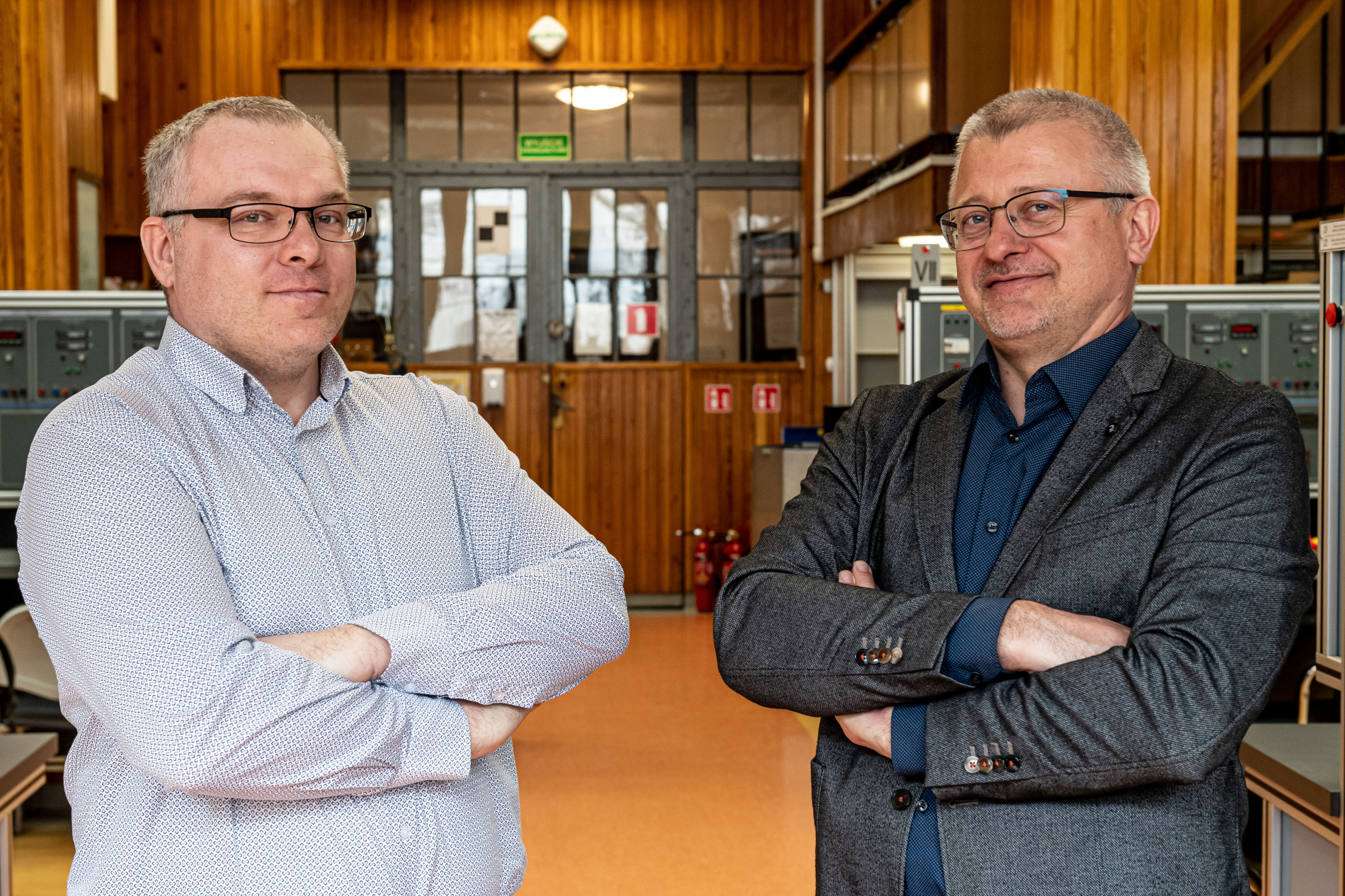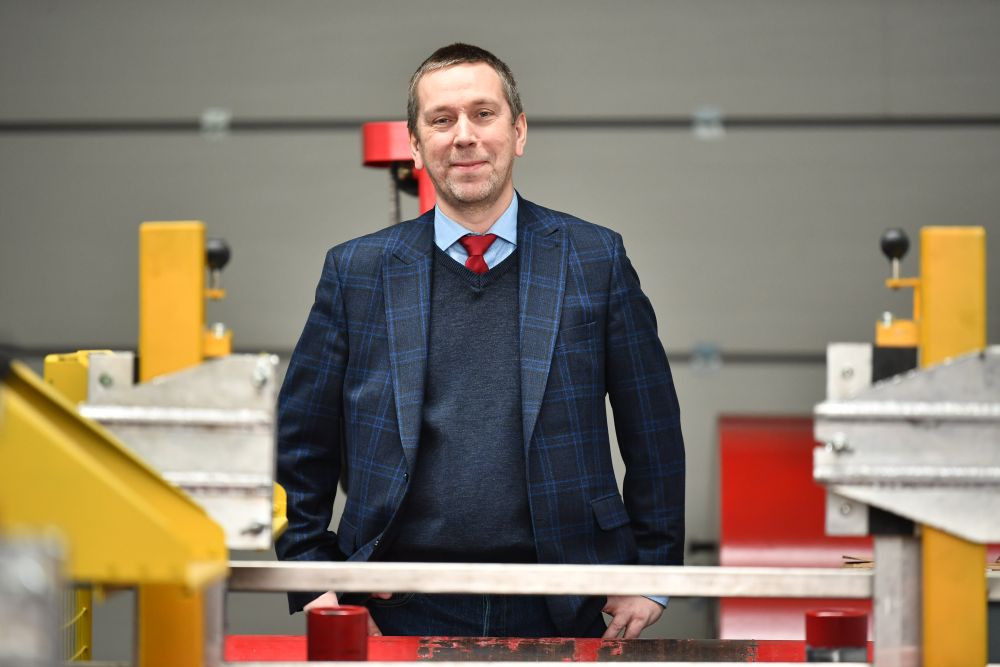YOUR BROWSER IS OUT-OF-DATE.
We have detected that you are using an outdated browser. Our service may not work properly for you. We recommend upgrading or switching to another browser.
Date: 06.06.2023 Category: general news, international cooperation, science/research/innovation

Wrocław University of Science and Technology is taking part in the international HECATE project aiming to develop a hybrid-electric powered aircraft. Teams from the Faculty of Electrical Engineering and the Faculty of Geoengineering, Mining and Geology will conduct the research.
EU countries strive to achieve climate neutrality by 2050, which also applies to the aviation industry. One of the solutions proposed in this regard is the development of a Hybrid-electric Regional Aircraft service that could be used on European air routes.
This is the main objective of the HECATE (Hybrid-ElectriC regional Aircraft distribution Technologies) project, which involves 37 entities – companies, universities, and research units from eleven countries. Collins Aerospace has been appointed coordinator for the project, which has a budget of over 45 million EUR. The first, conceptual research phase will be completed in three years, with a prototype aircraft expected to be ready in 2035.
 Researchers from Wrocław University of Science and Technology, invited by the French industry and technology group Safran, will also be involved in the initiative.
Researchers from Wrocław University of Science and Technology, invited by the French industry and technology group Safran, will also be involved in the initiative.
“The key thing in this respect was our research related to electric machines. “Safran recognised our expertise and ability to study all sorts of phenomena in electric drives,” says Prof. Krzysztof Szabat from the Department of Electrical Machines, Drives and Measurements, head of the HECATE programme at Wroclaw Tech. “This is the largest project to date that will be carried out at our department,” he adds.
Creating a hybrid-electric aircraft model is an enormous challenge that requires the development of many new solutions and technologies. This entails issues relating to high voltage, arcing and electromagnetic interference, and optimising thermal management, among other things.
“This type of technology doesn’t yet exist in the world. Everything will have to be built from scratch. We do have electric cars and drones, but it’s a completely different scale of the project in many aspects – for instance, because of the need to integrate many systems or ensure a proper level of user safety,” emphasises Professor of the University Mateusz Dybkowski, PhD, Dsc, Eng., coordinator of the project at the Faculty of Electrical Engineering. “At the same time, it is important to bear in mind that the entire project is covered by a confidentiality clause, and many of the solutions we have developed may not be disclosed for a long time,” adds the researcher.
 The team from the Faculty of Geoengineering, Mining and Geology, on the other hand, will deal with issues including algorithm testing, adaptation and the development of new methods for the detection of rolling bearing faults in electric machines.
The team from the Faculty of Geoengineering, Mining and Geology, on the other hand, will deal with issues including algorithm testing, adaptation and the development of new methods for the detection of rolling bearing faults in electric machines.
“Apart from it, we will be concerned with predicting the lifetime of a rolling bearing, all of which relates to vibration signal processing. Ultimately, the diagnostic methods will be based on the electrical signals (current and voltage) recorded in the engine,” explains Prof. Radosław Zimroz, W6 Dean and project coordinator at the faculty. “Our work on the project also involves collaboration with Prof. Agnieszka Wyłomańska from the Faculty of Mathematics," he adds.
The researchers acknowledge that combining results and solutions developed by other research and industrial teams will pose a major challenge. “We aren’t developing a small component. We are creating a complete system for the aircraft, so everything we do has to be approved by the other partners,” says Prof. Mateusz Dybkowski.
Dozens of people, including PhD students, will be involved in the research at Wroclaw Tech. Prof. Krzysztof Szabat hopes that it will result in doctoral projects and scientific papers, but making the results public will require all project partners’ consent.
“The design phase will last for three years, but we also hope to be invited to participate in the following phases of the research and be part of the HECATE programme for several years to come,” adds Prof. Szabat.
Our university has received 800 thousand EUR to conduct the research. Aside from Wrocław University of Science and Technology, also Łódź University of Technology is taking part in the HECATE programme – it will be tasked with identifying potential environmental hazards arising from the use of new materials and modern production techniques.
mic


Co-funded by the European Union. Views and opinions expressed are however those of the author(s) only and do not necessarily reflect those of the European Union or Clean Aviation. Neither the European Union nor Clean Aviation can be held responsible for them.
Our site uses cookies. By continuing to browse the site you agree to our use of cookies in accordance with current browser settings. You can change at any time.